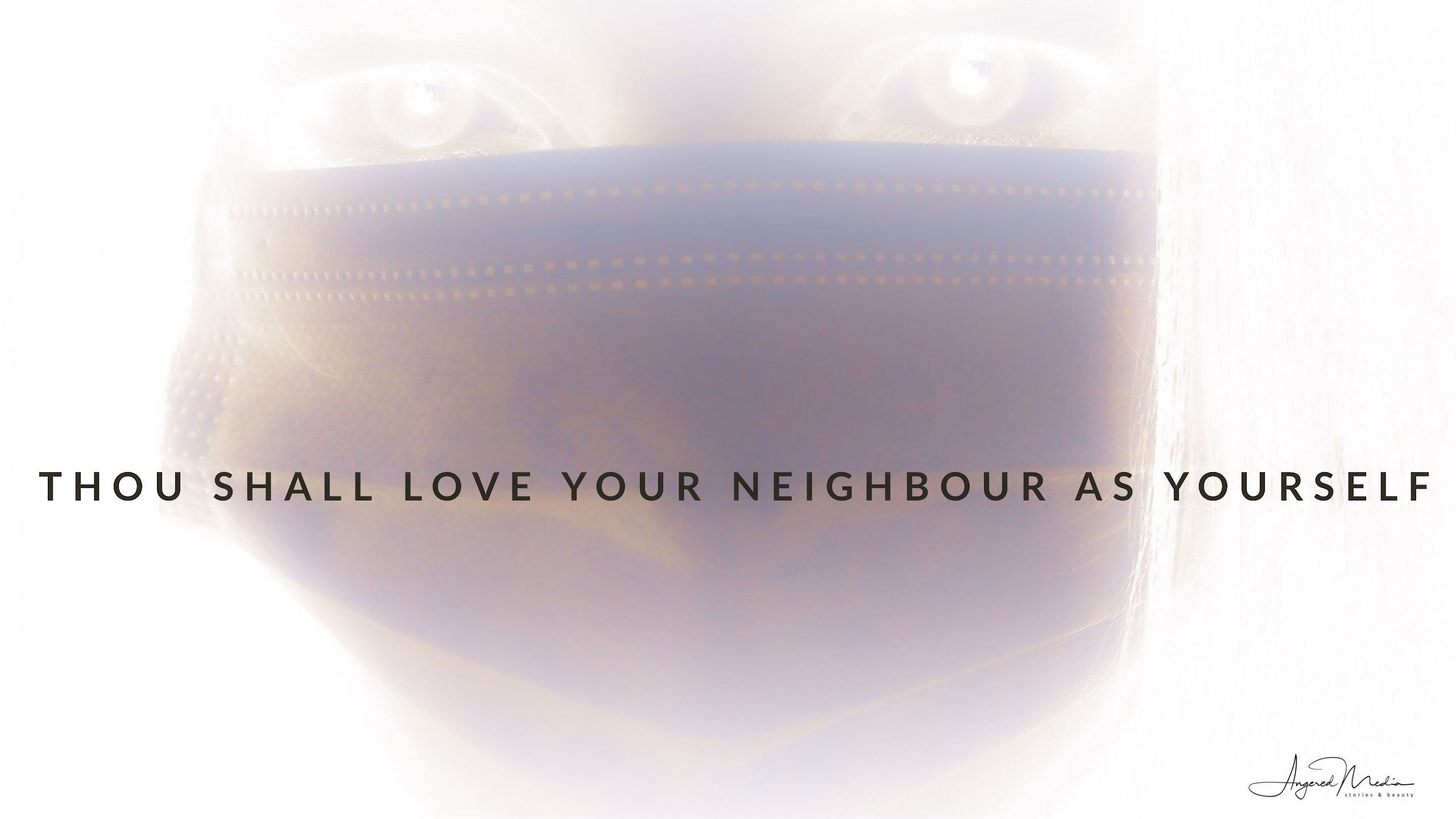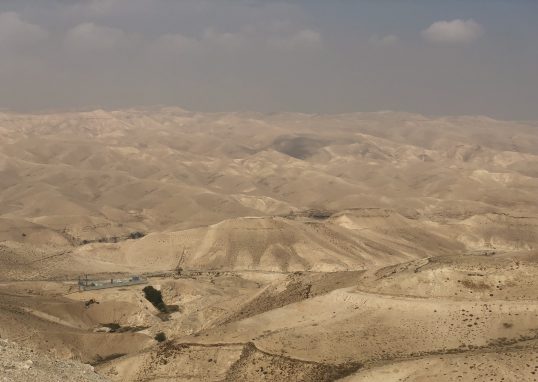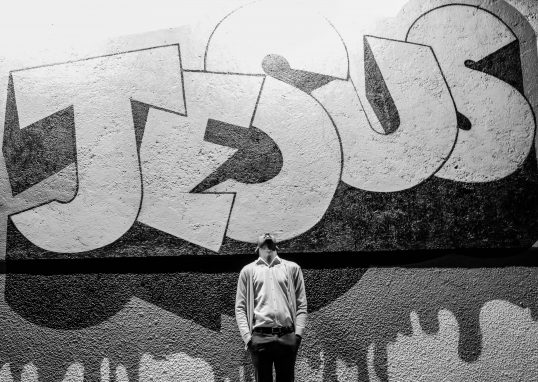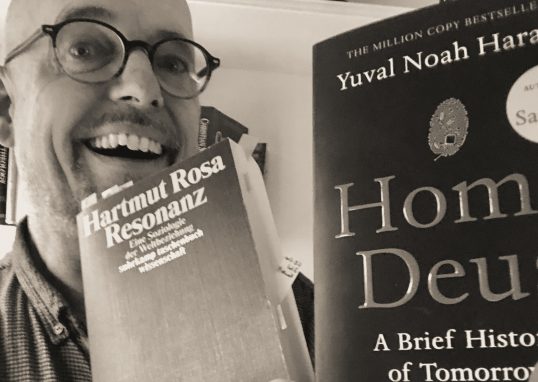
A Theology of Face Masks
(de [Seite 1]/en) For years I had the privilege of hanging around in various operating rooms, attending fascinating things such as skull openings or amputations. Although I knew how the air-handling system in an operating room needs to work, like in which way the air had to be distributed and filtered in order to keep the room as safe and sterile as possible, everyone in the operating room wore one thing on their faces anyway: a face mask. It’s a true equalizer because neither Prof. Dr. Surgeon Himself nor the cleaning person would have ever had the bizarre idea of questioning the purpose of face masks and take it off, despite the sophisticated filter and ventilation technology. Neither would anyone have seen it as the sole solution to all germ problems in the hospital. The face mask was and still is an obligatory, self-evident additional protection of the weakest person in the room, the patient, sedated and completely helpless on the table, exposing in a highly vulnerable manner his or her open body to everybody present. Therefore, I knew for a long time that wearing a large piece of cellulose in front of your mouth and nose would cloud your glasses, make your face warm and sweaty and also, now you could even enjoy your own bad breath yourself.
I openly admit, however, that I found myself quite puzzled when I many years later observed typical surgical face masks increasingly at places like the airport, although it’s commonly known that only few surgeries are done right there at the boarding gate or baggage claim. It appeared to be mostly Asian-looking travelers who chose to filter their breath anyway. Not even in my wildest dreams I would have imagined buying my daily bread in a regular grocery store of 2020 with a surgical mask attached to my face! Times are truly changing. Today over 7.4 Billion or more than 95% of the world’s population lives in a country that either prescribes, partially prescribes or at least recommends wearing mouth and nose protections.

The face mask made its triumphal march around the world at an amazing speed. Of course, any rapid change of our daily habits is always being discussed and debated, and the face mask phenomena forms no exception. After all, just from a purely aesthetic point of view even a burqa might appear much more fashionable. The face mask is experienced as an annoying mouthguard, and, of course, nobody wants to admit publicly that you smell like a cow out of your mouth. In order to divert attention from such disgruntled arguments (the hygienic reasons and medical proofs have been unbeatable since Ignaz Semmelweis anyway) one prefers to discuss the political corr…, sorry, populist correct arguments like FREEDOM, independence, or economic efficiency. That too is somehow understandable. I, however, would like to know what the whole subject means for Christians, the church, and our appearance in a postmodern world.
First of all, I notice that wherever in the world Christians are required to wear a face mask, it is very likely that they obediently follow and obey the authorities – just as Romans 13 calls for. However, in countries where it is neither commanded nor recommended, only a minority of Christians take the initiative to wear a mask anyway. On the contrary, when given a choice, Christians are more inclined to become conservative anti-mask opponents than creative advocates. We could see it in the Pentecostal discourses in Brazil, for example, we could follow the heated arguments of evangelical Americans, and I personally see it myself in another country – one of the few countries marked entirely in red on the world map above: Sweden. Of course, Sweden is certainly no Christian country, the mask opponents are terrifyingly outnumbered anyway. Accordingly, the country’s Christians are certainly not known as trendsetters who bravely swim against the current here. To put it provocatively: My national and international observations make me believe that the so called body of Christ apparently prefers to drift bluntly through every current.
But wait, wouldn’t it be the one, greatest and by far the most important main task of every Christian to swim against the current of a numb world?! That man we claim to be following never attracted the attention of the crowds by keeping an extremely camouflage grey-mouse low profile. His Sermon on the Mount is the manifesto of a loving rebellion because his kingdom is the rebellion of love. Ever since he received the Holy Spirit, he was actually constantly noticed for ruthlessly exposing the unkindness of the people. Much to the annoyance of the loveless ones of his time, because their selfish abuse of power was abundantly humiliated. Because God is love, his kingdom is one of love too. And love is brave. Therefore, the citizens of God’s Kingdom should consistently stand up for the weak. During Old Testament times it may have been mainly widows and orphans who needed special protection. The New Testament maybe emphasizes the sick and outcasts. In our century it might need to be the old, the weak and vulnerable risk groups – just like the mentioned patient on the operating table. Every single one around has to contribute, not just him or her over there.
So, if a face mask protects others more than it does protect myself during an ongoing pandemic, it would be the perfect contemporary sign of lived-out love and charity: I am thinking of you, I am loving you and taking care of you, I am lifting the other higher than myself, and for that I am happy to accept a few inconveniences. And yes, that face mask gnaws a little at my pride and vanity in my own everyday life, therefore it becomes a welcome, small, daily exercise in humility and maturity. Let’s love our neighbour as ourselves!
And by the way, in case you’re living in Sweden, you even have the wonderful chance to become the odd one out again – just like Jesus! So, if you really have to go out, be brave, grab yourself a mask, then go and enjoy all the unmasked, amazed looks at you that declare you crazy. After all, it’s only crazy love that manages to swim against the current on the long haul.





